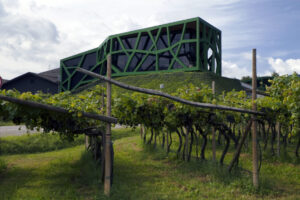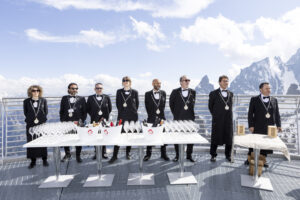Health-related policies involving taxes on alcoholic products (61%), the global economic slowdown (55%), climate change (50%), the low marginality of the wine industry (46%), the restriction of advertising rules for wine (40%), international trade wars (40%), growing competition from beer and spirits (32%), Brexit (22%) and, finally, competition with cannabis (13%): Here are, in order, the main challenges and concerns in the thoughts of the protagonists of the wine business, over 1,700 experts from 46 countries around the world, from whose answers is built the “ProWein Business Report” 2019, the study commissioned by the international wine fair, signed by the University of Geisenheim. In addition to an in-depth focus on aspects related to climate change, adaptation and environmental sustainability, which are some of the issues most felt by the sector (and which according to many will impact on production levels, product style, but also on costs and margins, ed), has also investigated those that, according to operators (manufacturers, importers, distributors and so on), will be the most attractive markets in the near future. Among these, at the top emerges Scandinavia, with Sweden, Denmark, and Norway that are at the top of the ranking, as well as Japan, China and Hong Kong (with a score of 0.95, where the maximum is 2), followed by the U.S., Canada, and Poland. While the greatest expectations for the future, in terms of attractiveness, are all for markets not yet mature, or not at all, such as South Korea, China and Hong Kong themselves, but also Brazil, Poland, Russia, and Japan. While the greatest difficulties, according to the operators, will be in the United Kingdom, France, and Germany, strategic and structural markets for the wine business, but destined to live years of fatigue in the future. At the top of the list of emerging markets where operators see the greatest potential, there are Singapore, Taiwan, Czech Republic, and India.
On the whole, however, a picture of the wine emerges that is certainly not optimistic, but with some differences between the main producing countries. In France and Spain, but also in Germany, for example, the economic situation in 2019, according to operators, is, on the whole, better than expected, but by 2020 many expect a significant deterioration. A similar trend to that of Italy, where, however, 2019 that, so far, does not seem to have given the expected results, is not expected, in the immediate future, a major decline in the situation.
The economic challenges posed by the cooling of the global economy and trade barriers, therefore, are also reflected in the economic development expectations for 2020. Moreover, after the abundant harvest of 2018, “the market - the authors of the study explain - has suddenly shifted from a state of shortage to a state of oversupply, evidence of increased market volatility. As a result of price increases due to the poor harvest in 2017, raw material prices fell sharply worldwide in 2019 and stocks were still above average at the end of 2019. This double burden of high supply and slowing demand is reflected in the declining expectations of the various producers”. A gloomy picture of how, beyond sequins and sequins, the world of wine is increasingly complex, competitive and difficult.
Copyright © 2000/2025
Contatti: info@winenews.it
Seguici anche su Twitter: @WineNewsIt
Seguici anche su Facebook: @winenewsit
Questo articolo è tratto dall'archivio di WineNews - Tutti i diritti riservati - Copyright © 2000/2025








































































































































































































